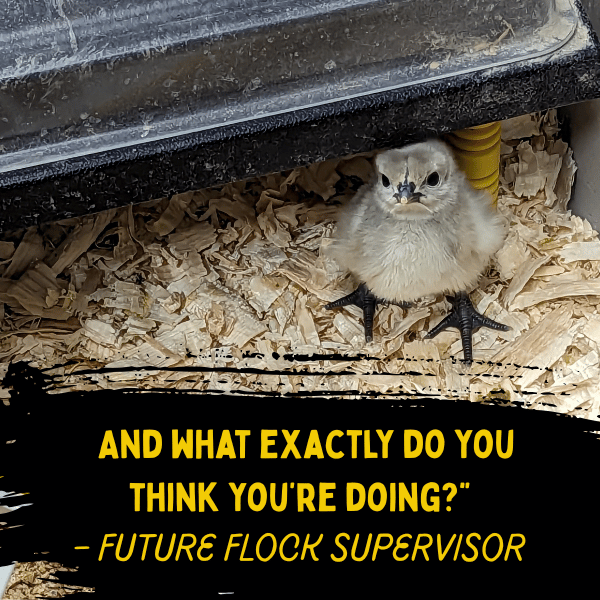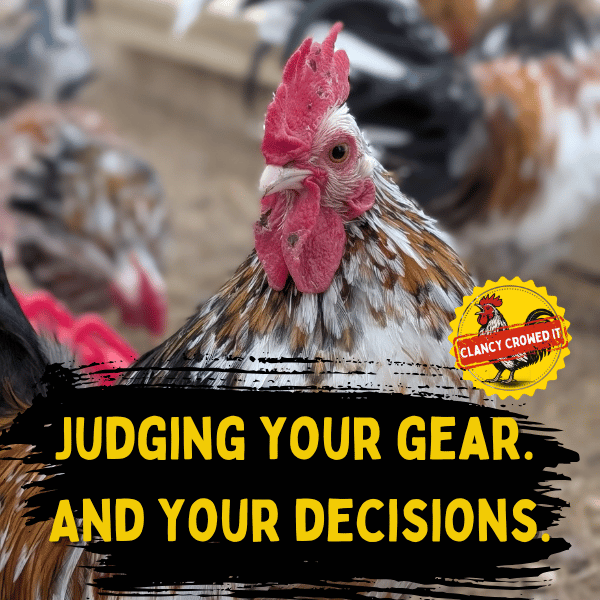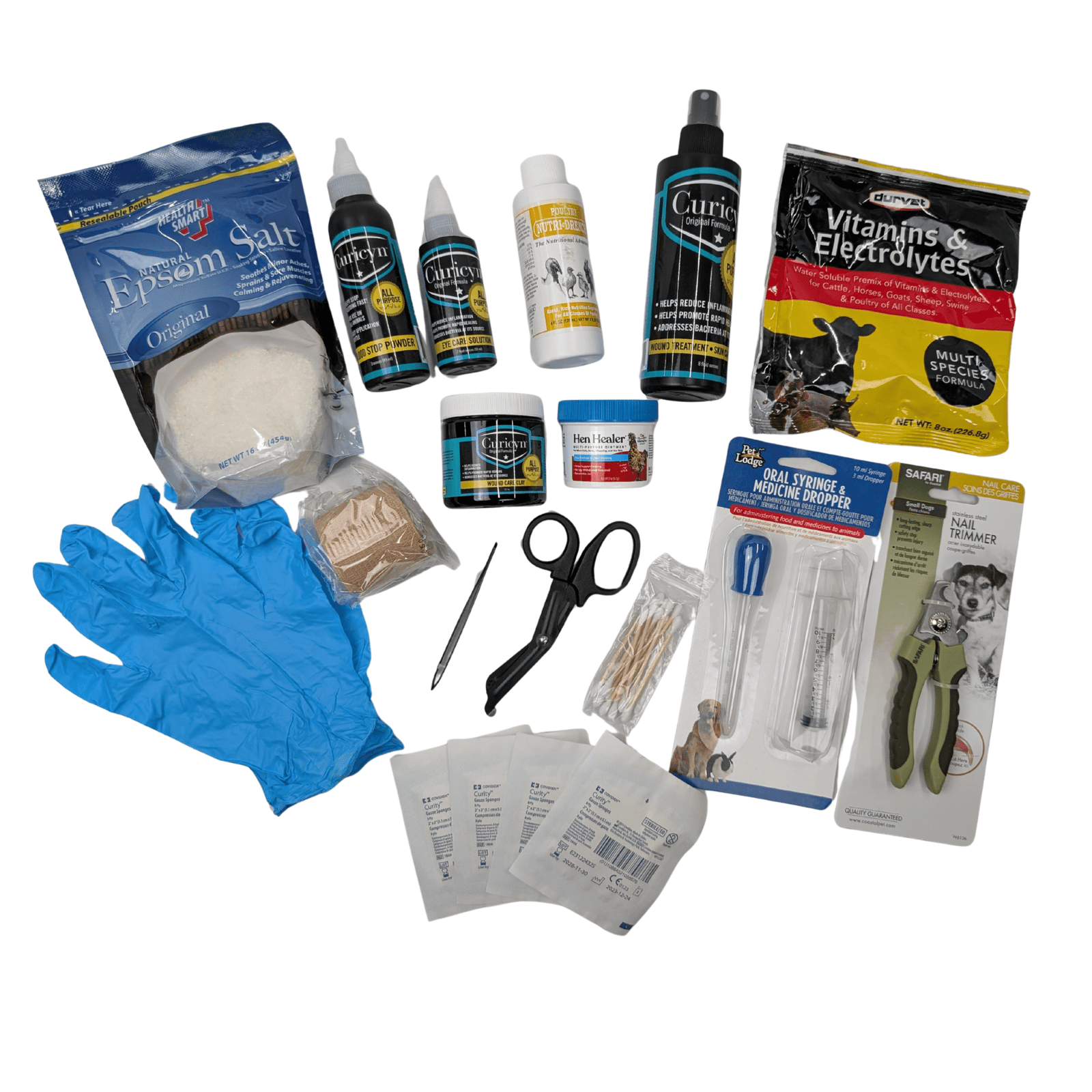Greetings, fellow chicken enthusiasts! Today we're going to dive into the fascinating world of chicken health. Whether you're raising backyard chickens for fresh eggs, meat, or simply as pets, keeping your feathery friends healthy is essential. Maintaining a flock of happy, healthy hens not only brings joy to you and your family, but it also ensures a steady supply of delicious eggs and meat.
So, let's take a stroll through the farmyard and explore the ins and outs of general chicken health. We'll cover the importance of proper nutrition, housing, and hygiene, as well as common health issues and how to prevent them.
Section 1: The Building Blocks of Chicken Health
-
Nutrition: Feeding Your Flock Right
A balanced diet is the key to ensuring your chickens' overall health and well-being. The right mix of protein, carbohydrates, fats, vitamins, and minerals will keep your flock in tip-top shape.
- Layer Feed: For egg-laying hens, a good quality layer feed is essential. It contains the necessary nutrients and minerals to support consistent egg production. Look for feeds with 16-18% protein content.
- Meat Bird Feed: If you're raising chickens for meat, you'll want to provide a broiler or meat bird feed that's higher in protein (around 20-24%).
- Grit: Chickens need grit to help grind up food in their gizzards. Provide free access to grit, even if they have access to natural sources, like pebbles or sand.
- Calcium Supplements: Laying hens require additional calcium to produce strong eggshells. Offer crushed oyster shells or ground limestone in a separate dish.
- Treats: Treats like mealworms, fruits, and vegetables can be a fun and healthy addition to your chickens' diet. Just be sure to limit treats to 10% of their daily intake to maintain a balanced diet.
-
Housing: A Cozy, Safe, and Clean Home
Chickens need proper housing to protect them from predators, harsh weather, and to provide them with a comfortable place to roost and lay eggs.
- Space: Make sure your coop has adequate space for your flock. A good rule of thumb is 3-4 square feet per chicken indoors and 10 square feet per chicken outdoors.
- Ventilation: Proper ventilation prevents respiratory issues and keeps the coop dry and fresh. Install vents or windows to provide fresh air without creating drafts.
- Roosts: Chickens love to sleep off the ground. Provide roosts at least 2-3 feet off the ground to keep them safe and comfortable.
- Nesting Boxes: Provide one nesting box for every 4-5 hens. Line the boxes with straw or shavings for a soft, clean place for your hens to lay eggs.
- Predator Protection: Secure the coop with sturdy locks and hardware cloth to keep predators at bay.
-
Hygiene: Cleanliness Is Key
Regular cleaning and maintenance help prevent disease and parasites. Keep the coop and run clean by following these tips:
- Regularly remove droppings and soiled bedding.
- Replace bedding with fresh, dry materials.
- Scrub and sanitize feeders and waterers weekly.
- Perform a thorough coop cleaning and disinfection every 3-6 months.
Section 2: Common Chicken Health Issues and Prevention
-
Parasites: Keep Bugs at Bay
Chickens can be prone to external parasites like mites and lice. Regularly inspect your flock for signs of infestation and treat as needed with approved pesticides. Provide a dust bath area with a mix of to help your chickens naturally prevent and control parasites. Diatomaceous earth should be avoided due to the potential of respiratory issues.
-
Respiratory Issues: Breathe Easy
Respiratory issues can be caused by bacteria, viruses, or environmental factors. To prevent these issues:
- Ensure proper ventilation in the coop.
- Keep bedding dry and clean.
- Avoid overcrowding.
- Vaccinate your flock against common respiratory diseases, if recommended for your area.
-
Egg-Laying Problems: Cracking the Code
Egg-laying problems like egg-binding, soft-shelled eggs, or double-yolked eggs can affect your hens' health. To prevent these issues:
- Provide a balanced diet with adequate calcium.
- Ensure access to clean, fresh water at all times.
- Minimize stress by providing a consistent daily routine and a calm environment.
- Monitor your hens for signs of distress and consult a veterinarian if problems persist.
-
Infectious Diseases: Stop the Spread
Chickens can be susceptible to various infectious diseases. To protect your flock:
- Practice biosecurity measures, like limiting visitors to your flock and using dedicated clothing and footwear when tending to your birds.
- Quarantine new birds before introducing them to your existing flock.
- Keep wild birds and rodents away from your coop and feed storage.
- Vaccinate your flock against common diseases, if recommended for your area.
Section 3: Chicken First Aid and When to Call the Vet
It's essential to have a basic understanding of chicken first aid and know when to call in professional help.
-
First Aid Kit: Be Prepared
A well-stocked chicken first aid kit can help you handle minor injuries and health issues. Some essential items to include are:
- Antiseptic solution
- Gauze and bandages
- Tweezers and scissors
- Wound spray or ointment
- Electrolyte powder for dehydration
- Vet wrap or cohesive bandages
-
Basic Chicken First Aid: Handling Minor Issues
For minor injuries or health concerns, you can often provide basic care at home. Some common issues and solutions include:
- Wounds: Clean the wound with an antiseptic solution and apply a wound spray or ointment.
- Sprains or Strains: Provide a quiet, comfortable area for the injured bird to rest and recover.
- Dehydration: Provide electrolyte water and encourage the bird to drink.
-
When to Call the Vet: Don't Hesitate
In some cases, professional help is needed. If you're unsure about the severity of an issue or if the problem doesn't improve with at-home care, consult a veterinarian experienced in avian medicine.
Conclusion
Raising a healthy, thriving flock of chickens is a rewarding experience that requires dedication and knowledge. By providing proper nutrition, housing, and hygiene, you can prevent many common health issues. Regularly monitoring your flock for signs of illness or injury and knowing when to call a veterinarian are essential skills for any chicken keeper. With these tips and best practices in mind, you're well on your way to enjoying the clucks and cackles of your happy, healthy flock for years to come.












